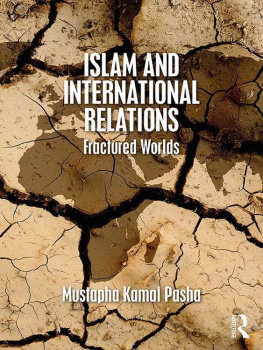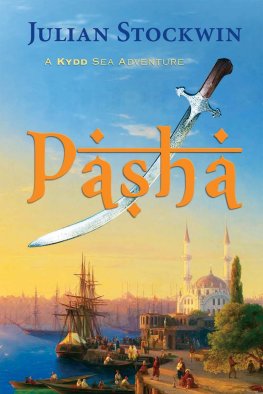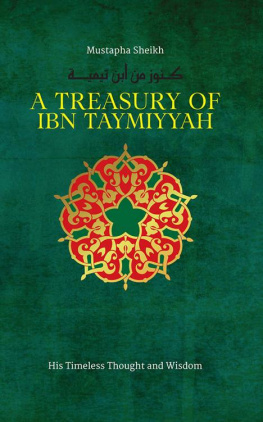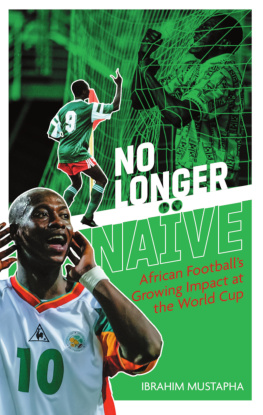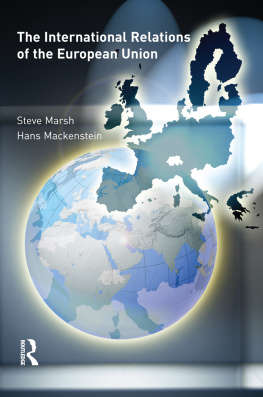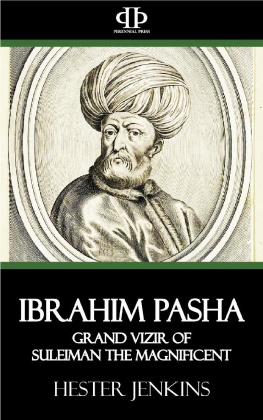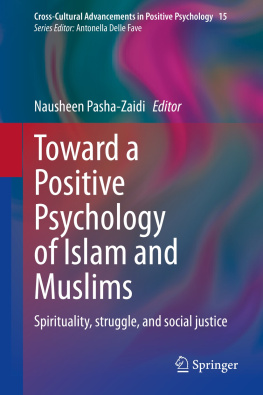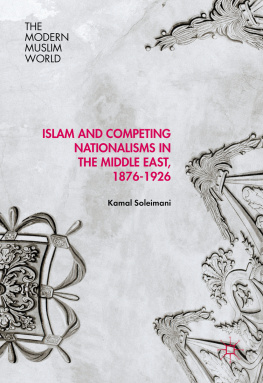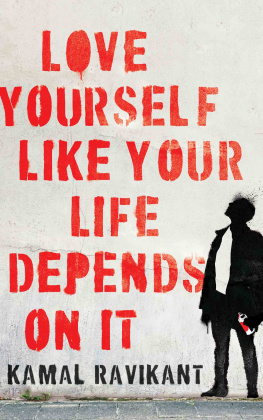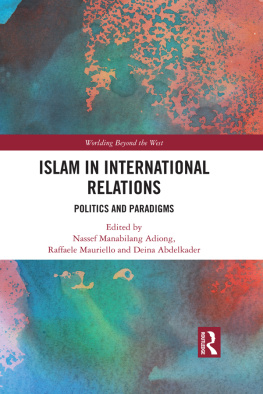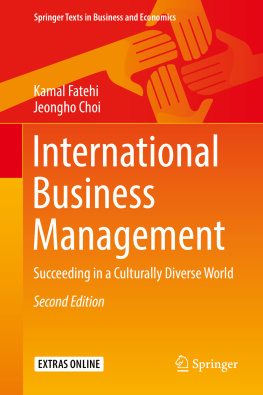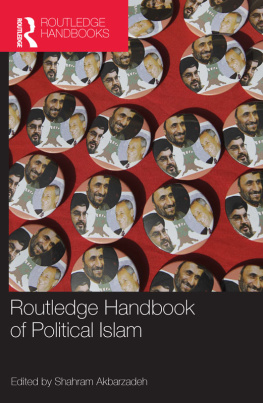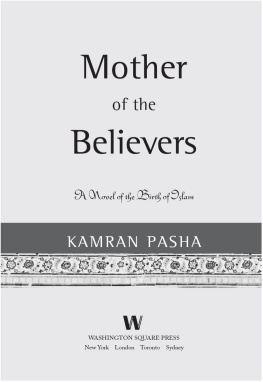Mustapha Kamal Pasha - Islam and International Relations
Here you can read online Mustapha Kamal Pasha - Islam and International Relations full text of the book (entire story) in english for free. Download pdf and epub, get meaning, cover and reviews about this ebook. year: 2017, publisher: Taylor and Francis, genre: Politics. Description of the work, (preface) as well as reviews are available. Best literature library LitArk.com created for fans of good reading and offers a wide selection of genres:
Romance novel
Science fiction
Adventure
Detective
Science
History
Home and family
Prose
Art
Politics
Computer
Non-fiction
Religion
Business
Children
Humor
Choose a favorite category and find really read worthwhile books. Enjoy immersion in the world of imagination, feel the emotions of the characters or learn something new for yourself, make an fascinating discovery.
- Book:Islam and International Relations
- Author:
- Publisher:Taylor and Francis
- Genre:
- Year:2017
- Rating:3 / 5
- Favourites:Add to favourites
- Your mark:
- 60
- 1
- 2
- 3
- 4
- 5
Islam and International Relations: summary, description and annotation
We offer to read an annotation, description, summary or preface (depends on what the author of the book "Islam and International Relations" wrote himself). If you haven't found the necessary information about the book — write in the comments, we will try to find it.
Islam and International Relations — read online for free the complete book (whole text) full work
Below is the text of the book, divided by pages. System saving the place of the last page read, allows you to conveniently read the book "Islam and International Relations" online for free, without having to search again every time where you left off. Put a bookmark, and you can go to the page where you finished reading at any time.
Font size:
Interval:
Bookmark:
This is a major book by one of the most original thinkers of Islam and IR of our time. Islam and International Relations: Fractured Worlds is a brilliant contribution to critical and postcolonial IR which tackles ways to overcome hegemonic thinking and explores the fractured character of alternatives. Through a series of brilliant essays Mustapha Kamal Pasha grapples with the problem of locating Islam within IR, but also imagines what it means to disrupt the self-evident truths of a Western political imagination whose consistent supplication of capturing frames of Islamic alterity has evaded glimpses in Islamic thought of a possibility of a truly global world order. This book allows us genuine insights into the ways we imagine we can live, and fail to live, in fractured worlds and how we might imagine a world otherwise. It is quite simply a must-read.
Anna M. Agathangelou, York University, Canada
Islam and International Relations: Fractured Worlds reframes and radically disrupts perceived understanding of the nature and location of Islamic impulses in international relations. This collection of innovative essays written by Mustapha Kamal Pasha presents an alternative reading of contestation and entanglement between Islam and modernity.
Wide-ranging in scope, the volume illustrates the limits of Western political imagination, especially its liberal construction of presumed divergence between Islam and the West. Split into three parts, the essays cover Islamic exceptionalism, challenges and responses, and also look beyond Western international relations.
This volume will be of great interest to graduates and scholars of international relations, Islam, religion and politics, and political ideologies, globalization and democracy.
Mustapha Kamal Pasha is Chair in International Politics at Aberystwyth University, UK. He is the Editor of Globalization, Difference and Human Security (2013).
ISLAM AND INTERNATIONAL RELATIONS
Fractured Worlds
Mustapha Kamal Pasha

First published 2017
by Routledge
2 Park Square, Milton Park, Abingdon, Oxon, OX14 4RN
and by Routledge
711 Third Avenue, New York, NY 10017
Routledge is an imprint of the Taylor & Francis Group, an informa business
2017 Mustapha Kamal Pasha
The right of Mustapha Kamal Pasha to be identified as author of this work has been asserted by him in accordance with sections 77 and 78 of the Copyright, Designs and Patents Act 1988.
All rights reserved. No part of this book may be reprinted or reproduced or utilised in any form or by any electronic, mechanical, or other means, now known or hereafter invented, including photocopying and recording, or in any information storage or retrieval system, without permission in writing from the publishers.
Trademark notice: Product or corporate names may be trademarks or registered trademarks, and are used only for identification and explanation without intent to infringe.
British Library Cataloguing in Publication Data
A catalogue record for this book is available from the British Library
Library of Congress Cataloging in Publication Data
Names: Pasha, Mustapha Kamal, author.
Title: Islam and international relations : fractured worlds / Mustapha Kamal Pasha.
Description: Abingdon, Oxon ; New York, NY : Routledge, 2017. | Includes bibliographical references and index.
Identifiers: LCCN 2016056402 | ISBN 9781138644434 (hardback) | ISBN 9781138646049 (pbk.) | ISBN 9781315627786 (ebook)
Subjects: LCSH: Islam and international relations. | Islamic countries--Foreign relations--Western countries. | Western countries--Foreign relations--Islamic countries.
Classification: LCC BP190.5.D56 P37 2017 | DDC 327.0917/67--dc23
LC record available at https://lccn.loc.gov/2016056402
ISBN: 978-1-138-64443-4 (hbk)
ISBN: 978-1-138-64604-9 (pbk)
ISBN: 978-1-315-62778-6 (ebk)
For Ritu, Ayesha and Tariq
This collection brings together my work on the confluence of Islam and international relations. Spread over several years, the various chapters engage common themes arising within different thinking contexts and with varied intent. I am immensely grateful to the publishers for granting permission to use the following copyright material:
Mustapha Kamal Pasha, Introduction
Copyright 2003 Carfax Publishing. The Introduction draws from Fractured Worlds: Islam, Identity, and International Relations, which was originally published in Global Society 17(2), 2003. Reprinted with permission from Taylor & Francis Group.
Mustapha Kamal Pasha, Exception/Exceptionalism
Copyright 2009. This chapter was originally published as Global Exception and Islamic Exceptionalism, in International Politics 46(5), 2009. Reprinted with permission from Palgrave Macmillan.
Mustapha Kamal Pasha, Liberalism, Islam, and International Relations
Copyright 2006. This chapter was originally published in Branwen Gruffydd Jones, Decolonizing International Relations. New York: Rowman & Littlefield, 2006. Reprinted with permission from Rowman & Littlefield.
Mustapha Kamal Pasha, Human Security and Islam
Copyright 2007. This chapter was originally published as Human Security, Securitization, and Islam, in Giorgio Shani, Makato Sato and Mustapha Kamal Pasha, eds, Protecting Human Security in a Post 9/11 World: Critical and Global Insights. Basingstoke, UK: Palgrave Macmillan, 2007. Reprinted with permission from Palgrave Macmillan.
Mustapha Kamal Pasha, Islam and the Postsecular
Copyright 2012. This chapter was originally published in The Review of International Studies 38(5), 2012. Reprinted with permission from Cambridge University Press.
Mustapha Kamal Pasha, Globalization and Cultural Conflicts
Copyright 2006. This chapter was originally published as Globalization, Cultural Conflicts and Islamic Resurgence, in B.N. Ghosh and Hilal M. Guven, eds, Globalization and the Third World: A Study of Negative Consequences. Basingstoke, UK: Palgrave Macmillan, 2006. Reprinted with permission from Palgrave Macmillan.
Mustapha Kamal Pasha, Fate of Democracy
Copyright 2002. This chapter was originally published as Predatory Globalization and Democracy in the Islamic World, in Annals of the American Academy of Political and Social Science 581(1), 2002. Reprinted with permission from Sage Publishers.
Mustapha Kamal Pasha, Leadership in Challenging Times
Copyright 2011. This chapter was originally published as Global Leadership and the Islamic World: Crisis, Contention, and Challenge, in Stephen Gill, ed., Global Crises and the Crisis of Global Leadership. Cambridge: Cambridge University Press, 2011. Reprinted with permission from Cambridge University Press.
Mustapha Kamal Pasha, Critical IR and Islam
Copyright 2005. This chapter was originally published as Islam, Soft Orientalism, and Hegemony: A Gramscian Rereading, in Critical Review of International Social and Political Philosophy 8(4), 2005. Reprinted with permission from Taylor & Francis.
Mustapha Kamal Pasha, Postorientalism and Civilizational Discourse
Copyright 2007. This chapter was originally published as Civilizations, Postorientalism, and Islam, in Martin Hall and Patrick Thaddeus Jackson, eds, Civilizational Identity: The Production and Reproduction of Civilizations in International Relations. New York: Palgrave Macmillan USA, 2007. Reprinted with permission from Palgrave Macmillan USA.
Next pageFont size:
Interval:
Bookmark:
Similar books «Islam and International Relations»
Look at similar books to Islam and International Relations. We have selected literature similar in name and meaning in the hope of providing readers with more options to find new, interesting, not yet read works.
Discussion, reviews of the book Islam and International Relations and just readers' own opinions. Leave your comments, write what you think about the work, its meaning or the main characters. Specify what exactly you liked and what you didn't like, and why you think so.

